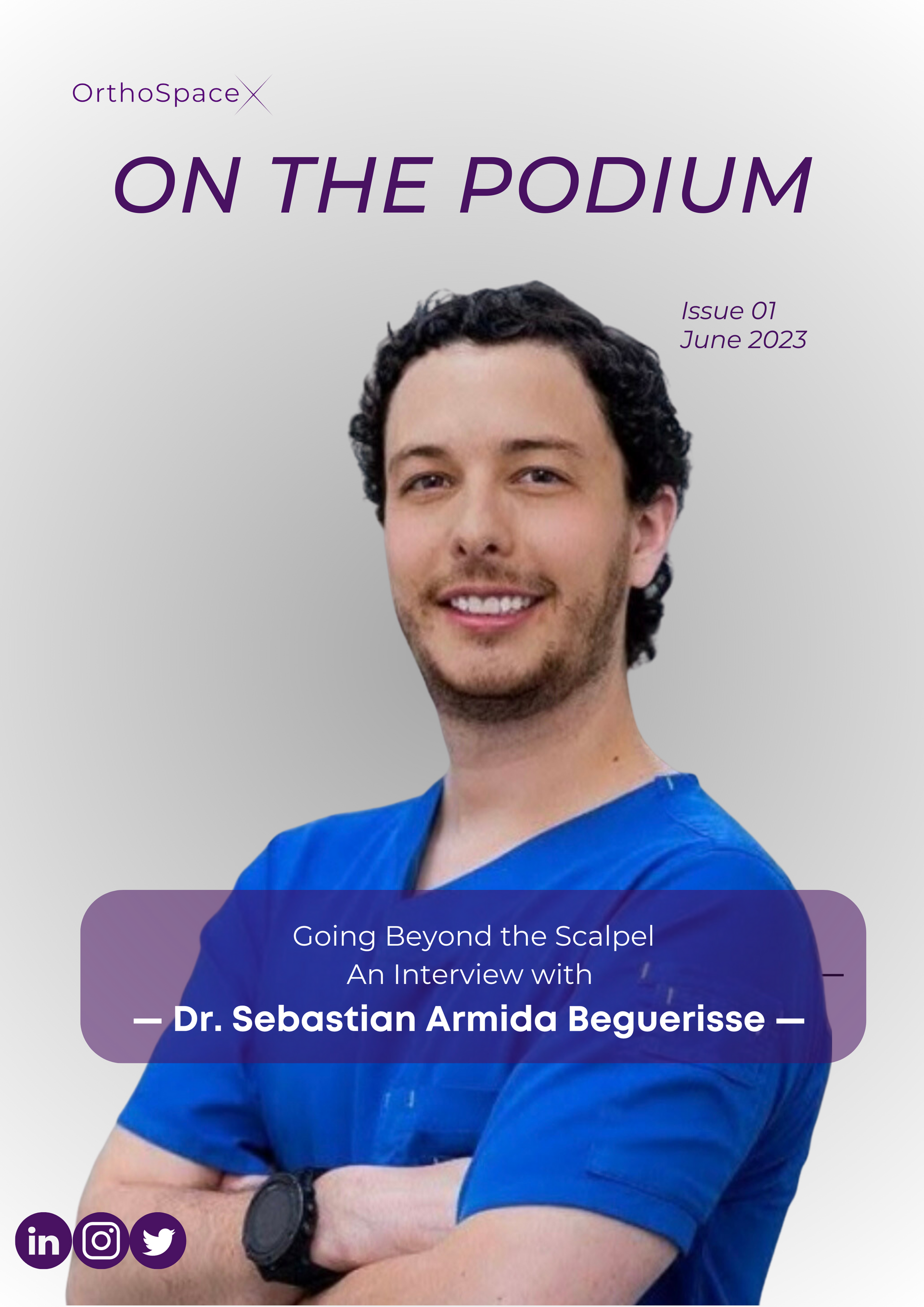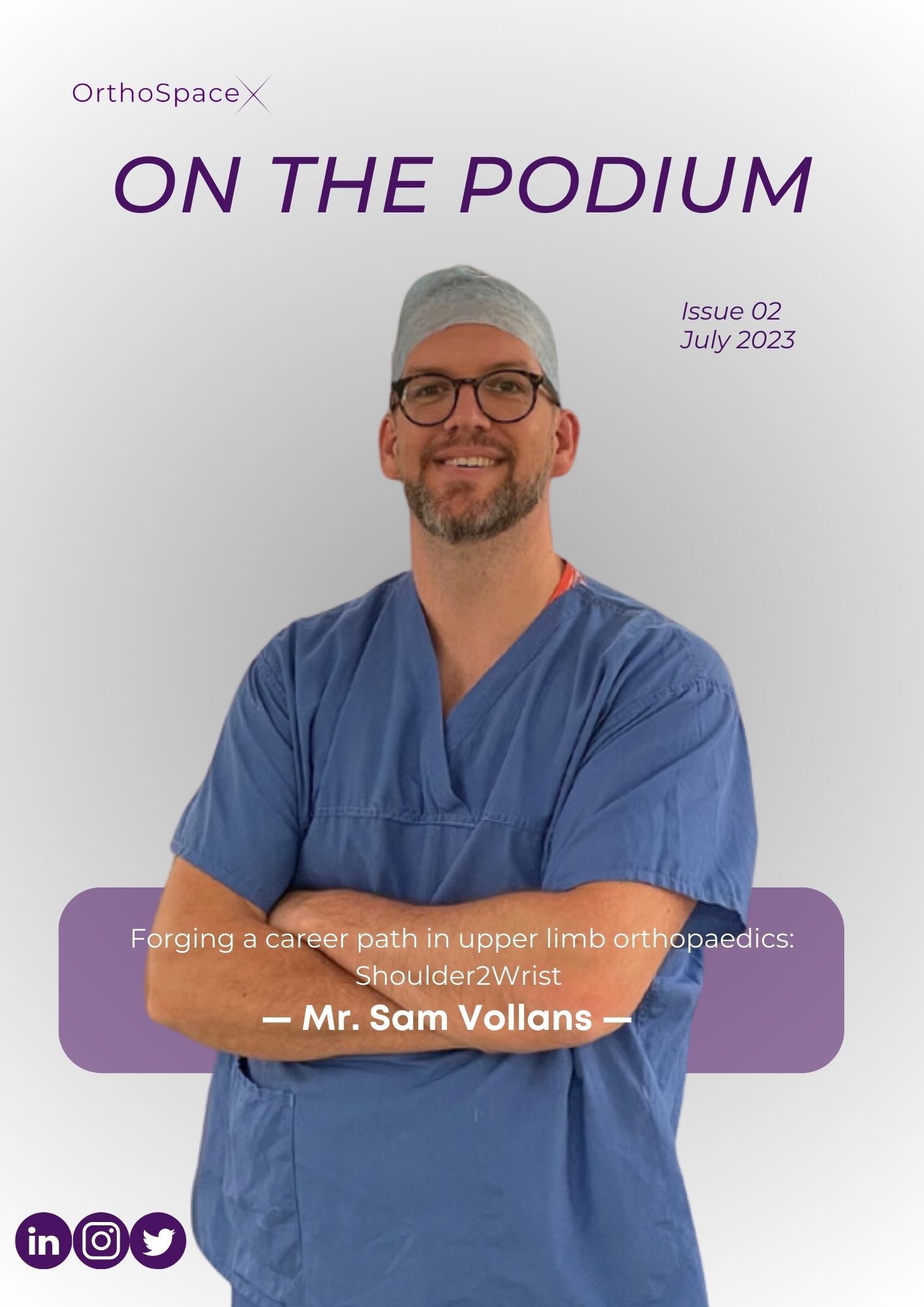Putting Your Best Foot Forward
Insights from Foot & Ankle specialist
— Mr. Nikhil Nanavati —
Issue 08, March 2024
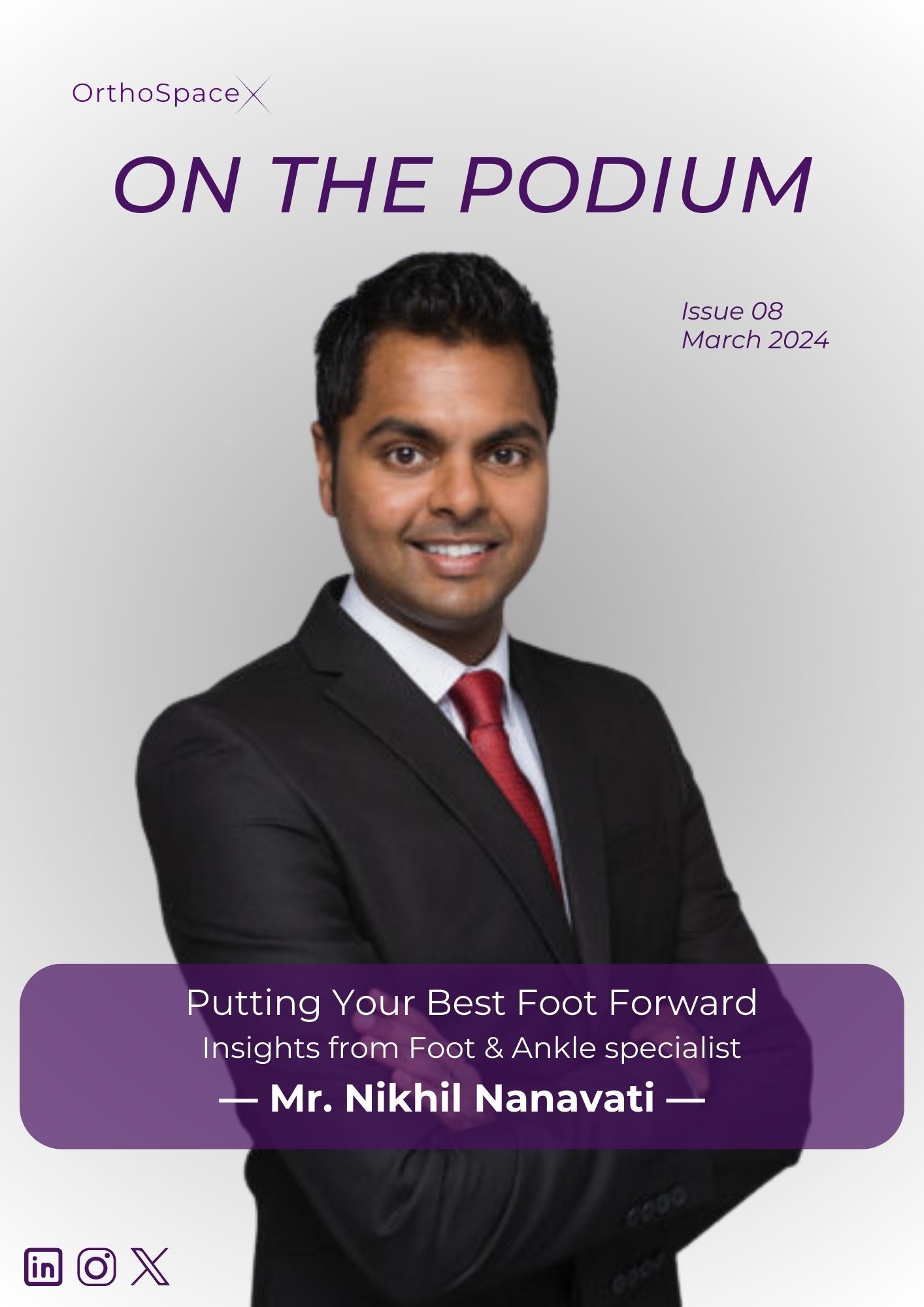
Can you talk us through your training pathway and your decision to specialise in Foot and Ankle Surgery?
I completed my medical school training at Brighton/Sussex Medical School and subsequent specialist orthopaedic training in Sheffield. I went on to complete a specialist fellowship in foot and ankle surgery in Leicester with the immensely talented Miss Patricia Allen.
I have been extremely fortunate to have worked alongside some very influential and talented figures in the world of foot and ankle surgery including Mr Chris Blundell (Sheffield), Mr Mark Davies (Sheffield), Miss Patricia Allen (Leicester), Mr Jitendra Mangwani (Leicester) and Mr Maneesh Bhatia (Leicester). Three of these people have been Presidents of the British Foot and Ankle Society and I expect the other two to become Presidents in the future.
These are not ordinary people that I have trained with - their everyday levels, performance and unwavering enthusiasm for the speciality of foot and ankle surgery means that they are at the very top of their game. It has been a privilege to undertake learning opportunities from these mentors as I feel the same sense of commitment to the speciality that they have been devoted throughout their careers.
I would like to think that I've taken some of the best bits from each of their own methods but the overall aim is to strive for perfection in every surgical procedure performed.
I really enjoy the planning required for each procedure and variability within the subspecialty - every operation I perform is different but very patient-specific.
Are the any pivotal moments during your training that influenced you?
Surgical technology within the field of foot and ankle surgery has advanced so much in recent years that we're now at a stage of performing 3D-printed implants to replace bones within feet and ankles for problems that would have previously been treated with amputations.
My exposure to limb-salvage 3D-printing technology in foot and ankle surgery (mainly in Sheffield) inspired me to pursue my ambition of becoming a Consultant Orthopaedic Foot and Ankle Surgeon.
We have recently performed our first 3D-printed hindfoot fusion procedure for a patient in Rotherham who is now more than 1 year post-op. They are doing very well and back to heavy work with a condition that would have potentially required an amputation a few years ago.
Overall the aims for my patients are the same; to be pain-free, wear shoes and walk again which is such a fundamental part of human existence.
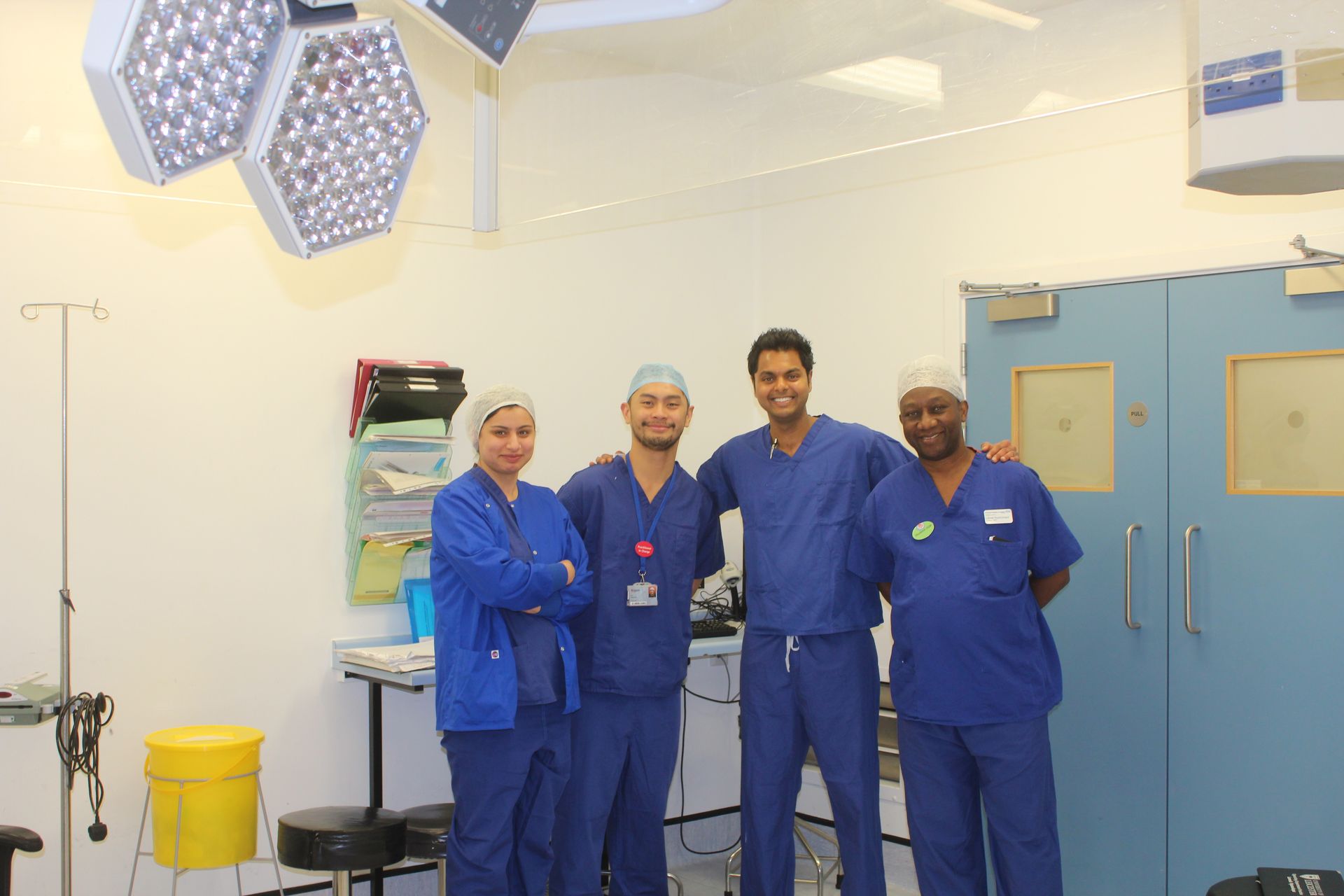
How did working alongside three BOFAS presidents prepare you for being a consultant?
My transition to becoming a consultant was made a lot easier by working for my previous mentors. They supported me throughout my training, taught me multiple skills and were influential figures in my career. Their technical abilities, planning of procedures and patient-care was constantly first-rate so I don't think I felt the pressures of clinical practice as much as some when I first started as a consultant.
From working with these people, I also had a flavour of the political situation within the field of foot and ankle surgery across the country. It is my ambition that patients are afforded the best possible, patient-specific care for their conditions from people who are appropriately trained and qualified to treat them. Patients should be aware of the qualifications and limitations of any practitioners treating them for their foot and ankle problems.
You were awarded the BOFAS Fellowship in Malawi, can you talk about this experience and what you learned both professionally and personally?
One case that stood out for me was a crocodile bite causing traumatic above knee amputation which is something I am unlikely to see again but provided me with exposure to surgical anatomy and fundamental principles which I carry-over into my everyday practice.
Another case was a young child who had stolen some fruit from a farm as they couldn't afford food. The farmer had caught the child and tied his hands behind a tree for more than 12 hours as a punishment. This led to a compartment syndrome of the child's forearms and ultimately permanent loss of use and function of his arms/hands.
I also went on to see crocodile bites, snake bites and delayed/neglected presentation of traumatic injuries. My exposure to surgical anatomy was unparalleled given the conditions that patients presented with. There were also very limited resources to perform operations which definitely developed my ability to think and adapt under pressure as well as developing multiple strategies for tacking various problems so I always have options available when surgically treating my patients.
During my downtime, I was also lucky enough to visit many nature reserves including safaris around Malawi with a local tour-guide.
From a personal perspective, the people of Malawi were always friendly, happy and respectful despite the daily struggles they faced. They were always appreciative of the care we provided during my time there and it made me feel extremely lucky to live in a country with a high-class medical infrastructure such as the NHS.
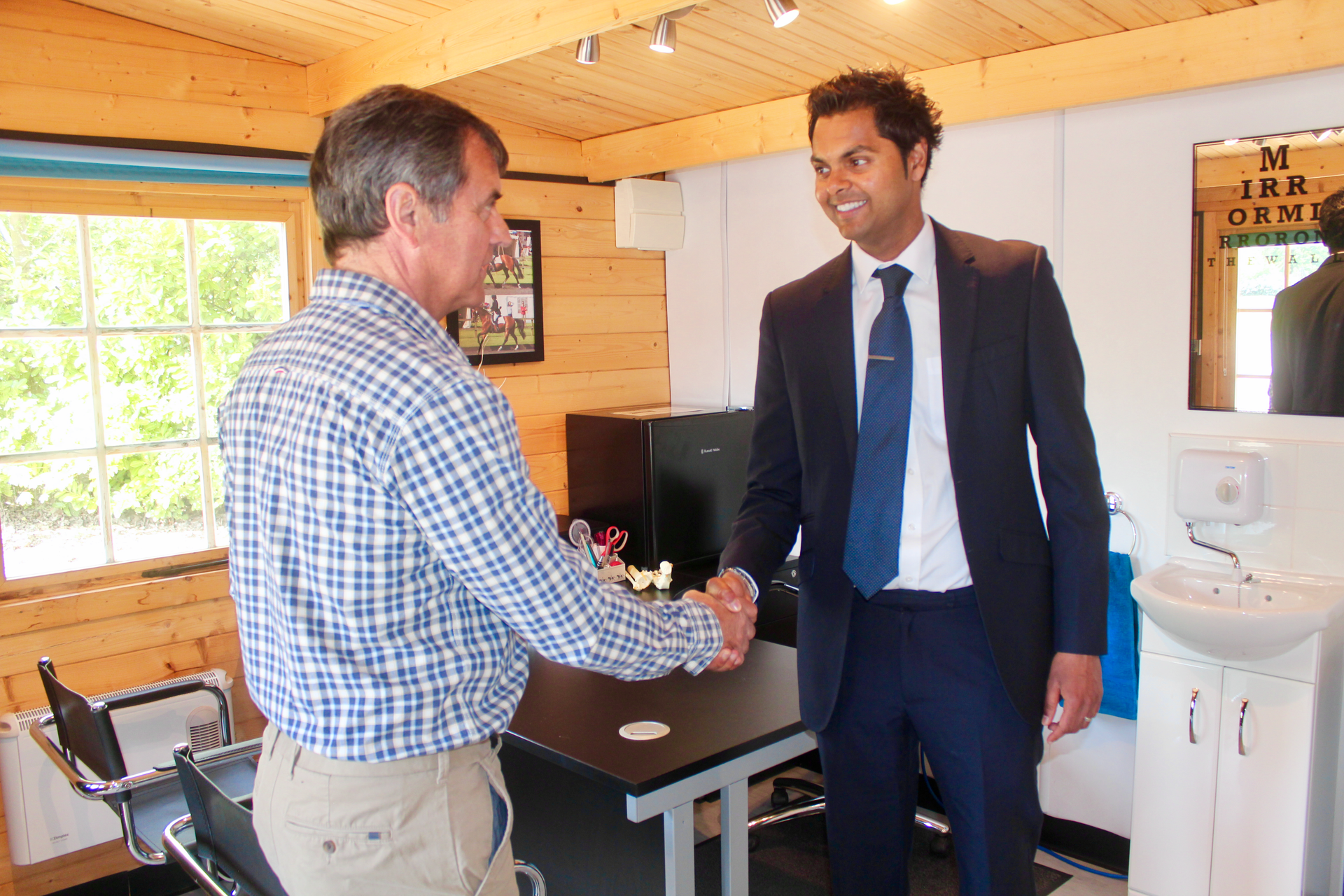
Congratulations on being an ATLS Instructor, what's involved in this process?
I've been an advanced trauma life support instructor (ATLS) instructor since 2013 and was lucky enough to have been selected for this teaching post. In order to be selected, you must perform and score at a high standard during an ATLS exam, following which you will be invited to train as an instructor.
I have now taught on multiple ATLS courses which always prove to be very rewarding experiences. The aim is to teach doctors about life-saving skills which they take forward into their everyday practice in the future.
I am also delighted to announce the I have recently become the course director for our first local ATLS course taking place in Rotherham NHS Foundation Trust later this year and I am looking forward to this new challenge.
Do you see any further opportunities to develop the training options for junior doctors?
Training opportunities have become more limited for doctors since the introduction of the working time legislations along with the provision of allied health professionals undertaking further sub-specialist training.
When trainees are working with me in foot and ankle surgery, I think it's extremely important for them to learn and train in a peaceful, calm and non-judgemental environment - these are the best conditions for achieving excellent surgical outcomes in my eyes. Those who know me know that I have high expectations but if the ground-work has been done, these expectations are usually matched in the theatre-setting. I like to ensure that my trainees have read up on cases before the day of surgery as well as reviewing patients post-operatively on the ward and in clinics.
I have personally found it is just as important to develop interpersonal skills required in the clinic setting as well as surgical skills in theatre. Developing a rapport with patients and ensuring they feel their problems have been heard is a challenge in a busy clinic but I strive to give all my patients a good experience and I try to instill this attitude into my trainees.
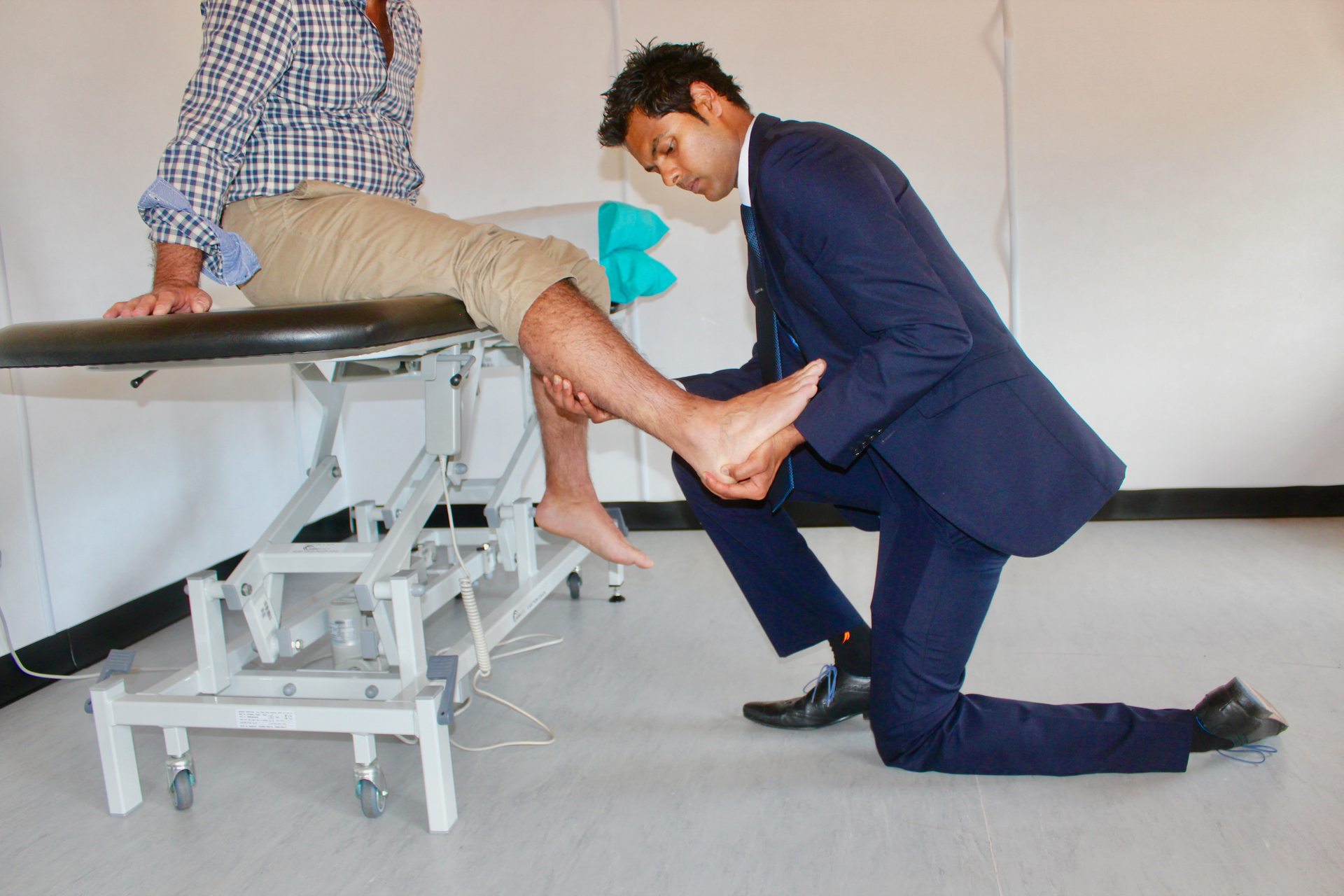
We noticed you're also working in a management role at Rotherham can you tell us more about that?
I have been deputy divisional director of surgery at Rotherham NHS Foundation Trust for the past 18 months and have found this job role to be extremely challenging and rewarding at the same time. I came into this job following the COVID-19 outbreak at a time where significant challenges were faced with the recovery of elective surgery within the NHS.
The reason I took on this role is because I want to help our surgical division reach its full potential. We need to ensure that patients experience high-quality care, staff feel valued and we have a strong sense of camaraderie amongst the surgical teams.
We have an extremely strong and clinically-led team within our surgical leadership team (SLT) who have to make difficult decisions under challenging circumstances and as part of this role, I sit on multiple meetings working with my multidisciplinary colleagues to develop robust strategies to support the safe provision of surgical care in our trust. Recent emphasis has been on theatre efficiencies, staffing models and improving patient/staff experiences within our unit.
The role can be challenging as management and clinical opinions can be varied but it is very important to see both sides of view, rationalise opinions and come to a balanced consensus that is agreeable where appropriate.
Do you have any advice for consultants looking to combine clinical roles with management?
These job roles aren't easy because decision-making isn't easy - every decision won't be popular with every respective individual so as a result, some people are always disappointed. However, if your overall aim is to improve and progress a department with a team-based vision and approach, it can be a really rewarding and valuable experience. Moreover for me, it has quickly taught me about the inner-workings of NHS infrastructure, local challenges and hospital systems which I hope to be able to utilise in my future clinical and management practice.

Mr. Nikhil Nanavati
Mr Nanavati is a consultant Orthopaedic Surgeon specialising in foot and ankle surgery. He is an expert in the generality of foot and ankle surgery with specialist skills in sporting injuries, key hole surgery and complex deformity correction. He was a student at The Manchester Grammar School, studied medicine at Brighton/Sussex Medical School and completed his orthopaedic training on the Sheffield, South Yorkshire rotation.
Mr Nanavati has worked alongside 2 past presidents of the British Foot and Ankle Society which included a 16 month fellowship with Miss Patricia Allen in Leicester. He has undertaken a trauma fellowship in Malawi, Africa and completed a post graduate masters in orthopaedic Engineering (Cardiff) which he passed with Merit. He ranked 11th in the country in his orthopaedic training entry exam and 4th in Yorkshire in his basic surgical training entry exam. He is the Deputy Divisional Director for Surgery in Rotherham, and he has won awards for innovation in orthopaedic surgery, as well as an NHS Clinical Excellence Award for Services to Foot and Ankle Surgery, published in multiple journals including the British Medical Journal and is an Advanced Trauma Life Support instructor.
Mr Nanavati was selected as part of a team of highly prolific names in foot and ankle surgery from around the world to write a chapter in ‘Essentials of Foot and Ankle Surgery’ which is an internationally recognised gold standard book. He is vastly experienced in writing medicolegal reports and has developed a reputation based on the quality of his reports, efficiency of his work and responsiveness to any questions posed. He is a member of the British Foot and Ankle Society (BOFAS).
In his spare time he enjoys running, walking his dog and spending time with his young family.
Mr Nanavati is known as the Yorkshire Foot Surgeon and has his own website detailing a range of additional information. This ranges from the treatments and aftercare he offers to patients, to useful patient information files on a range of his treatments.
We would like to thank Mr. Nikhil Nanavati for his time and insight into orthopaedic excellence.
Thank you to our sponsor:
JRI Orthopaedics
To download this issue of On The Podium, click below.

Sign up to On The Podium. The latest insights and inspiration from orthopaedic specialists around the globe sent straight to your inbox.
On The Podium
The newsletter brought to you by OrthoSpaceX
| Engage with Orthopaedic Leaders | Exclusive orthopaedic insight | |
| Stay Ahead in Orthopaedic Advancements | Uncover Surgical Innovations | |
| Empower Your Orthopaedic Knowledge | Unlock the Minds of Orthopaedic Specialists |


